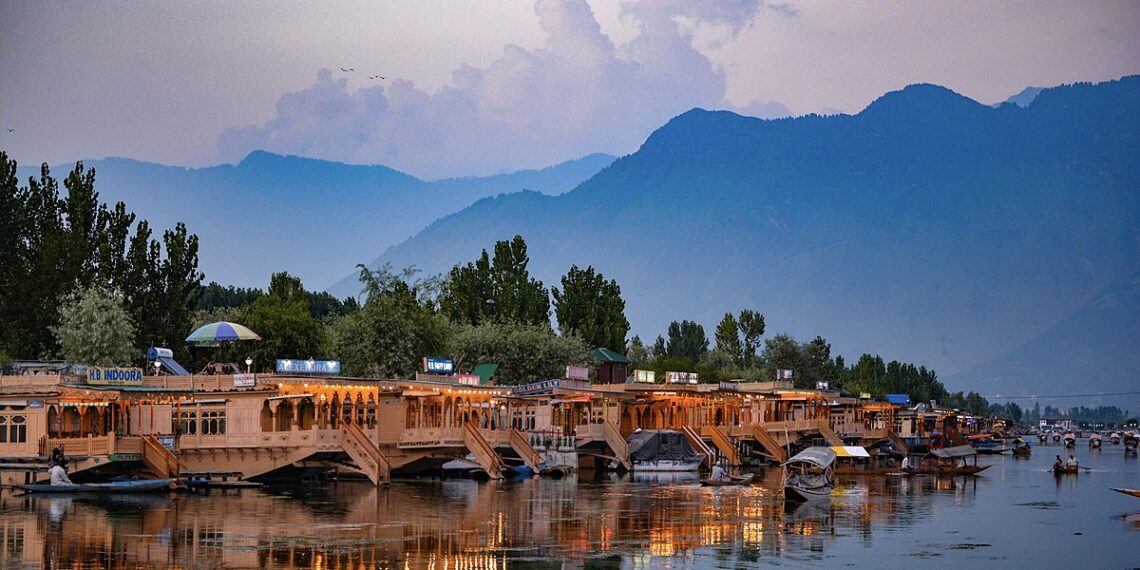“The world is a book, and those who do not travel read only one page.” Kashmir has mesmerised people with its stunning landscapes and deep cultural roots. The revocation of Article 370 in August 2019 marked a pivotal shift, opening the door to a new chapter for Kashmir. This change has set the stage for significant developments, offering fresh opportunities for governance, economic growth, and societal evolution.
Since the revocation of Article 370, Kashmir’s political landscape has experienced significant transformations. This change was aimed at integrating the region more closely with the Indian Union while introducing a governance structure focused on efficiency and development. One of the most notable advancements has been the establishment of District Development Councils, which empower local communities by involving them directly in decision-making. This initiative promotes accountability and transparency, ensuring that governance reflects the needs of the people. The formation of the state government has further contributed to political stability, striking a balance between maintaining law and order and upholding civil liberties to build public trust. A political framework that embraces diverse voices is essential for long-term stability. Meaningful engagement with local leaders and communities can strengthen a sense of inclusion and representation, laying the foundation for lasting peace and development in the region.
Kashmir holds vast economic potential and the current era offers significant opportunities for revitalisation. Traditionally dependent on agriculture, tourism, and handicrafts, the region’s economy has faced setbacks due to prolonged unrest. The government has made infrastructure development a priority, focusing on improving connectivity through better roads, telecommunications, and energy supplies, which are crucial for economic progress.
Tourism, a key sector, is undergoing a positive transformation. The region’s natural beauty and rich cultural heritage make it a prime destination for travelers. Efforts are being made to promote sustainable tourism, with an emphasis on eco-friendly practices and cultural experiences that honour local traditions. By diversifying tourism with options like adventure sports, eco-tourism, and cultural festivals, Kashmir can attract a wider range of visitors, generate employment, and boost local economies. Agriculture continues to be a vital component of the economy and modernisation initiatives aimed at incorporating technology, improving practices, and enhancing supply chains are essential for increasing productivity and farmer incomes. Supporting local farmers with training and market access can strengthen food security and economic stability, positively impacting rural communities.
The social fabric of Kashmir is diverse, consisting of various ethnic and cultural communities. The current era offers a chance to celebrate and preserve this rich heritage while promoting a more inclusive society.
Tolerance, and dialogue among communities are crucial, especially in a region that has faced deep divisions. Encouraging cooperation between different groups can help ease tensions and create a unified society. Youth engagement is vital for the region’s future. With a large portion of the population being young, prioritising education and skill development is essential. Vocational training and entrepreneurship programs can empower youth, providing them with the tools to make positive contributions. This focus on young people can also act as a deterrent to extremism and violence. Cultural revival is gaining momentum, with efforts to promote Kashmir’s rich traditions in handicrafts, music, and literature. Supporting local artists and encouraging cultural exchanges can help preserve this heritage, fostering pride within the community. Integrating cultural elements into tourism can also boost the region’s appeal, making it a vibrant hub of creativity and tradition.
The new era of Kashmir is marked by significant political, economic, and social changes. By encouraging inclusive governance, embracing new economic opportunities, and preserving its rich cultural heritage, Kashmir can pave the way for a brighter future. This transformation is not just about overcoming challenges; it is about fulfilling the aspirations of a resilient population committed to reclaiming their identity and creating a sustainable future. With collective effort and community involvement, Kashmir has the potential to become a symbol of peace and prosperity in South Asia.


